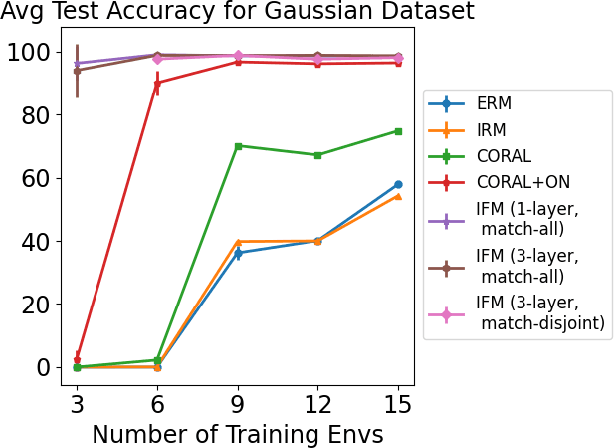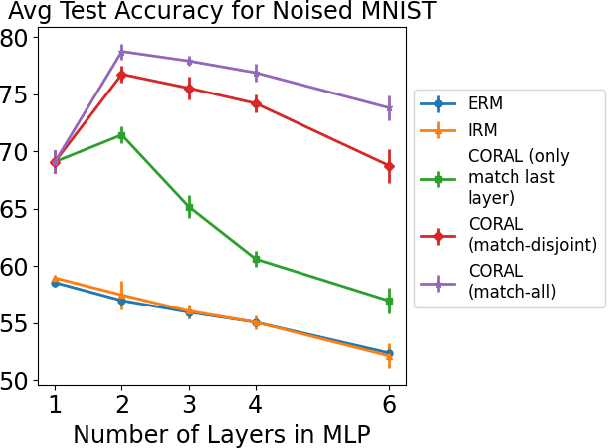Iterative Feature Matching: Toward Provable Domain Generalization with Logarithmic Environments
Paper and Code
Jun 18, 2021



Domain generalization aims at performing well on unseen test environments with data from a limited number of training environments. Despite a proliferation of proposal algorithms for this task, assessing their performance, both theoretically and empirically is still very challenging. Moreover, recent approaches such as Invariant Risk Minimization (IRM) require a prohibitively large number of training environments - linear in the dimension of the spurious feature space $d_s$ - even on simple data models like the one proposed by [Rosenfeld et al., 2021]. Under a variant of this model, we show that both ERM and IRM cannot generalize with $o(d_s)$ environments. We then present a new algorithm based on performing iterative feature matching that is guaranteed with high probability to yield a predictor that generalizes after seeing only $O(\log{d_s})$ environments.
 Add to Chrome
Add to Chrome Add to Firefox
Add to Firefox Add to Edge
Add to Edge